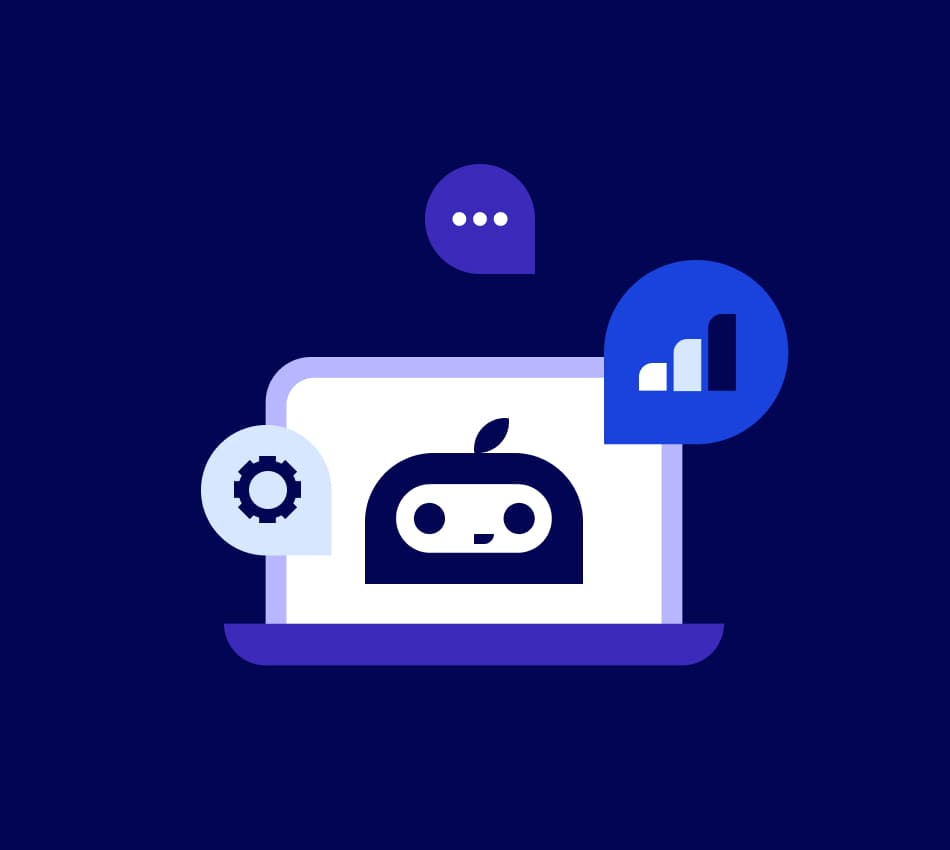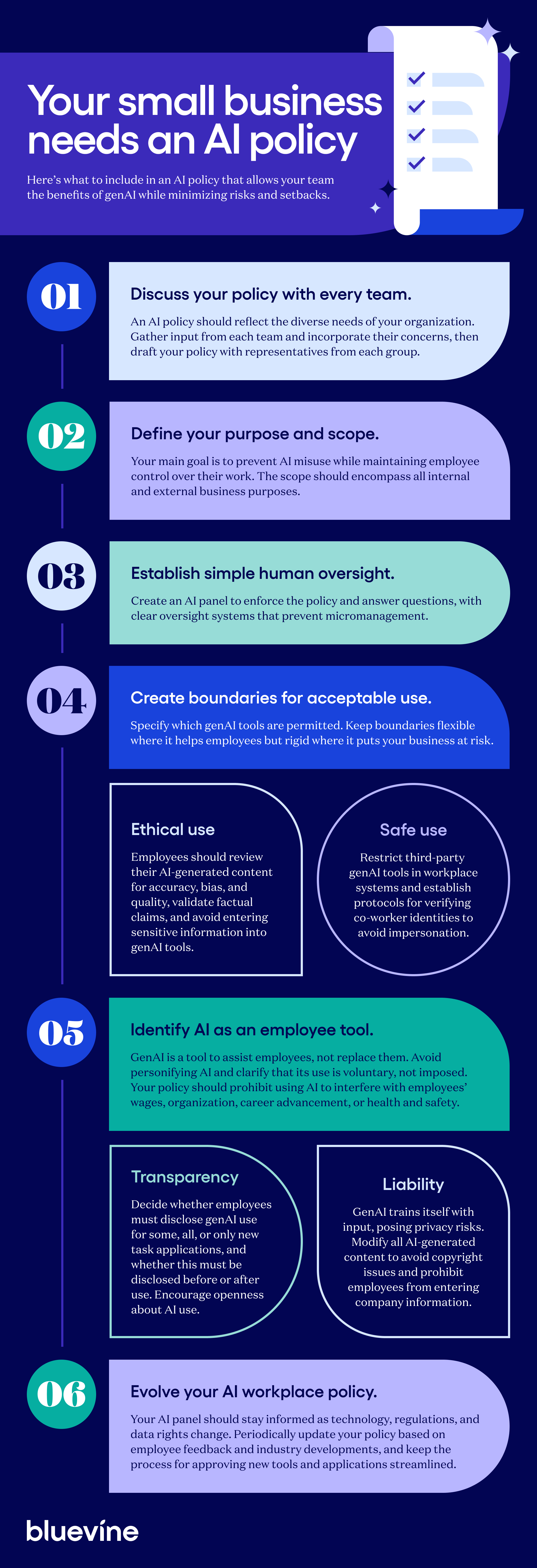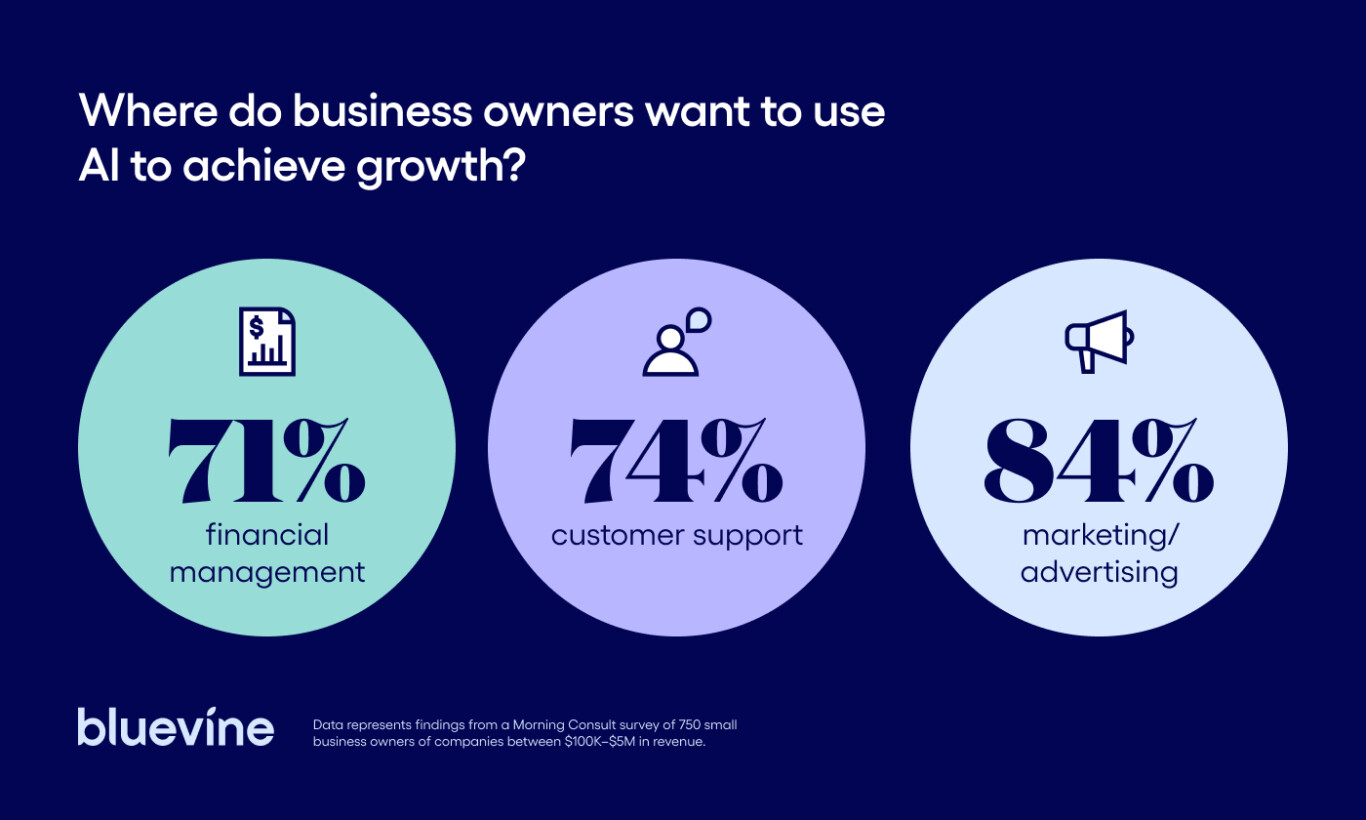How to use AI to grow your business
You probably interacted with AI before even pouring your coffee this morning. Maybe you asked Siri about the weather, or Google Maps how long your commute will be. But those are products from big corporations. Artificial intelligence is too complex and expensive for small businesses to benefit from, right? Quite the contrary.
By automating mundane tasks, analyzing data, or personalizing your customer experience, you can use artificial intelligence right now to transform your business—and your growth targets.
What are artificial intelligence and machine learning?
Artificial intelligence (AI) is the ability of a machine or program to imitate human intelligence and insight to perform tasks. Modern AI tools like your digital assistant or traffic app typically improve over time through machine learning (ML), a process in which AI incorporates new data into its future actions, improving its pattern recognition the way a human does.
The name “artificial intelligence” is a misnomer, one that brings to mind science-fiction stories that treat an advanced AI as an independent creature, maybe even a new type of person. But the recent crop of AI technologies are merely tools inspired by the way we learn and create—for example, by using machine learning to serve you recommendations on Amazon, Netflix, YouTube, Spotify, and Instagram.
This type of AI can’t replace you or your employees, but it can help your team streamline shallow work and focus on the creative, meaningful, value-creating work that only humans can do.
How is AI used in business?
Current AI tools can assist your business in three key ways:
- Automating tasks
- Analyzing data
- Engaging with employees and customers
For example, businesses use AI to analyze more vast data sets—more than employees can comb through manually—allowing for customer insights and interactions that were once out of reach. Large retailers and small businesses alike use machine learning to process these analytics and automatically recommend and restock everything they predict customers will want. This drives up sales while micromanaging inventory and offering customers a personalized experience, all without any human oversight.
Reasons businesses don’t implement AI
Companies face obstacles when adopting any new technology. These include:
- Integration. You’ll almost always be enhancing current systems rather than replacing them, so identify which specific problems you want AI to solve and focus on solutions that suit your existing operations.
- Upfront cost. Adopting new technology can be expensive, so project how much an AI solution could increase long-term profits and compare that to the cost of implementation.
- Learning curve. Learning new systems can be frustrating, so work with your employees to test AI solutions before launching, and hire external training if necessary.
- Employee displacement. Your team may be concerned that you’re using AI tools to render them redundant. Collaborate with employees when choosing solutions and when writing your AI workplace policy.
Ways AI can make your business more efficient
Let’s look at specific examples of how you can streamline your day-to-day business tasks with artificial intelligence.
Marketing and sales
Online retailers often use machine learning to build customer profiles based on activity. AI can then compare these customers with similar profiles to recommend products, or determine your highest-value customer segments for you to send targeted ads or promotions.
For marketing, consider an email campaign sent to thousands of customers, with an AI recording and categorizing every response. AI can also analyze your paid search ad analytics to find which ones work and what those ads have in common.
Operations
Because ML algorithms can forecast which products are wanted, where, and by whom, that same AI can project what inventory you’ll need to fulfill orders that haven’t been made yet.
AI can also recognize cybersecurity threats before humans can. Many banks now use ML to detect fraud by analyzing normal account activity, and similar algorithms can determine if one of your employee’s accounts has been compromised.
Customer support
For any business to thrive, it needs happy customers, and customers tend to be happiest when a business can quickly resolve issues as they arise.
Let’s say a customer sends an email or leaves a voicemail with a common support issue. Using language-recognition AI, an automated or generated response based on the text and context of the message can solve most common issues, reducing the load on your support team. These AI solutions can be a boon during a query spike, such as after a product launch or during a holiday sale.
HR
AI programs can automatically scan potential candidates’ resumes or LinkedIn profiles for relevant experience or interest, matching them with appropriate open roles. Within your business, AI could analyze the results of engagement surveys to highlight common themes among employee feedback, freeing you to quickly work on solutions that improve morale and promote retention.
Accounting
One of AI’s simplest and most effective uses is automating tedious activities, especially ones that are prone to human error. Data entry, verification, categorization, and reconciliation can be automated, as seen with some of the top accounts payable platforms. Complicated procedures like payroll can be automated to process logged hours and detect anomalies.
How to use AI to scale your business
Time to scale up? Here’s how AI can help get you there:
- Invest in education, then technology. AI tools are just that—tools—so before implementing AI, use online courses or consultants to educate yourself and your employees on how to use it effectively. Collaborate with experts to see where AI integration is possible, and where it’ll be most effective.
- Identify where AI would be an improvement. Automating a process requires you to define it, but if you define the process too narrowly, you’ll reduce its value compared to when a human does it. To avoid this, always fit AI to a problem, not the other way around.
- Start small. Begin with a small team and an 8-to-12-week pilot with clear goals. Test, analyze, and test again. If you skip testing, you’ll later have to spend time and money undoing the problems of poor implementation.
- Use AI to empower—not replace—employees. AI can improve employee productivity by freeing up their mental energy and time. For a successful scale-up, you’ll likely need the increased human productivity to meet demand from new customers, and replacing employees with computer programs would significantly weaken morale.
Save time on your accounts payable with convenient automation.


